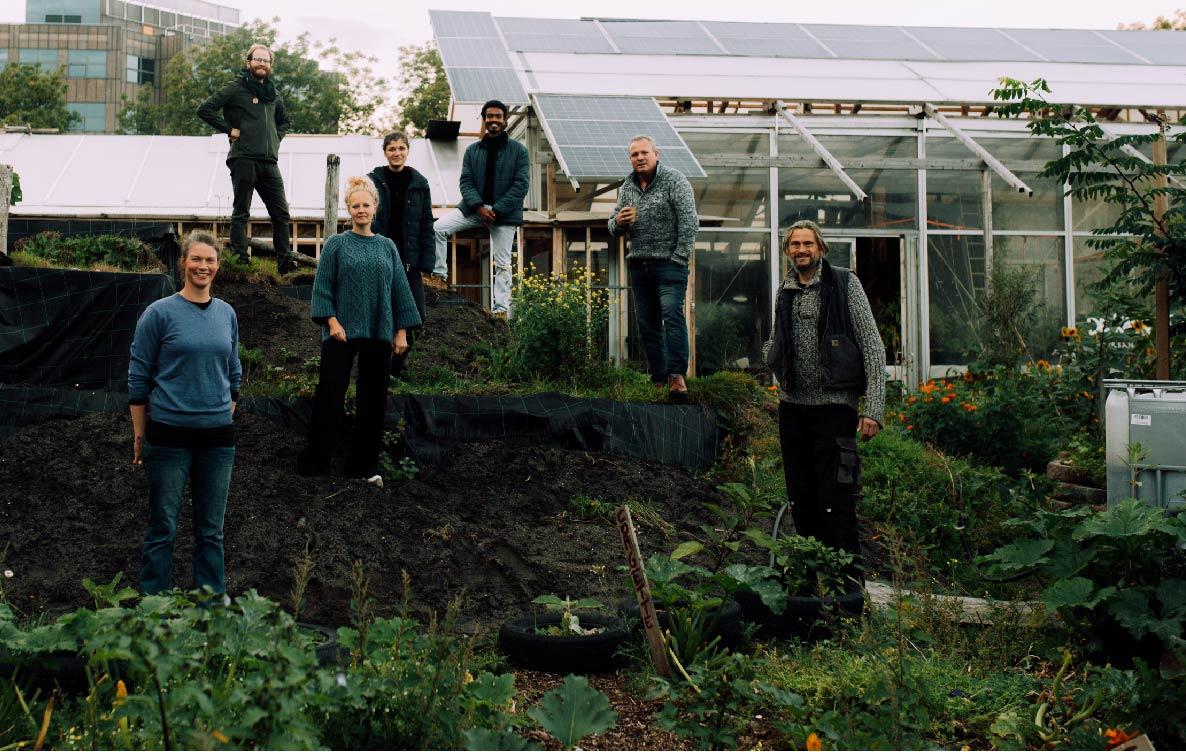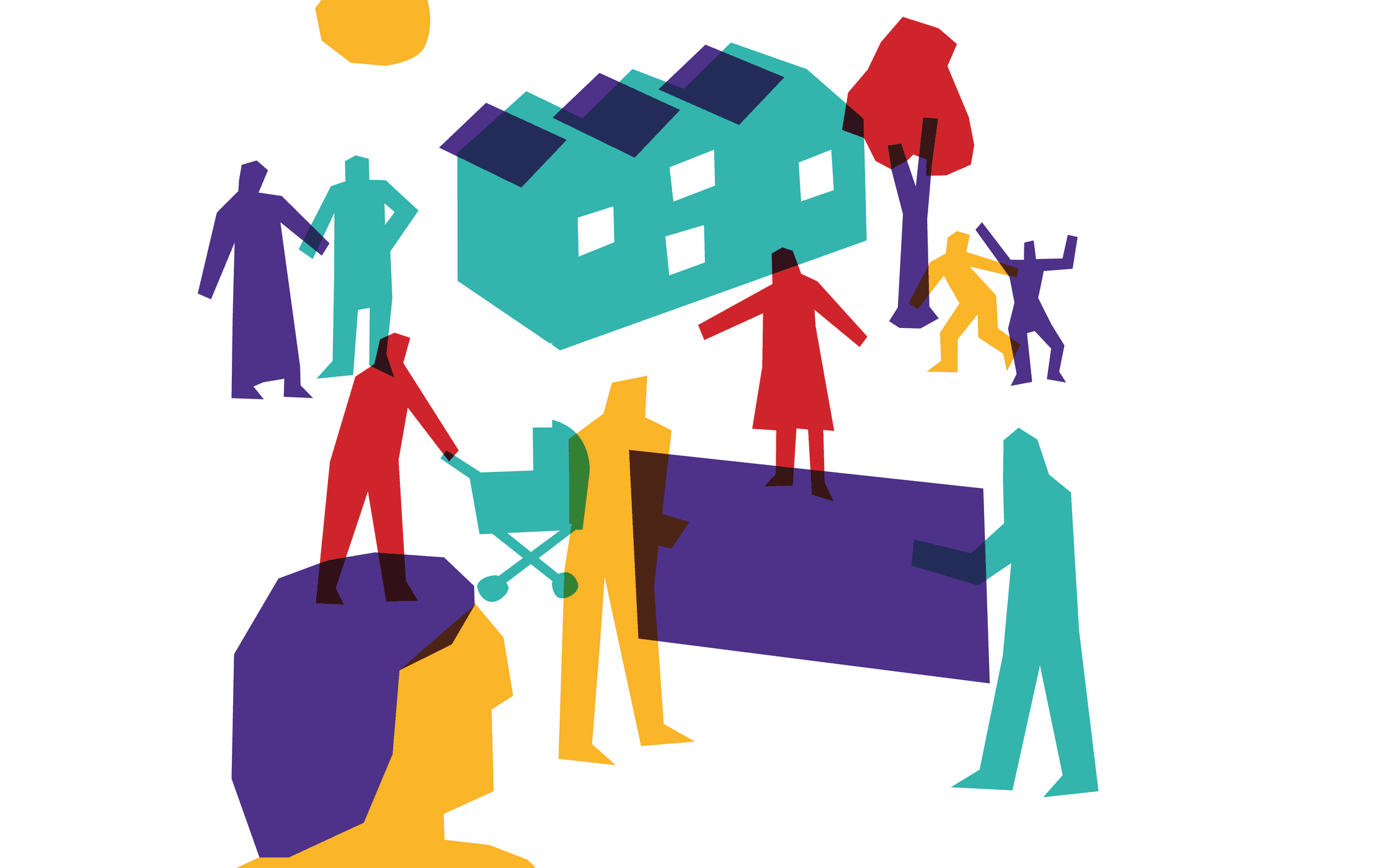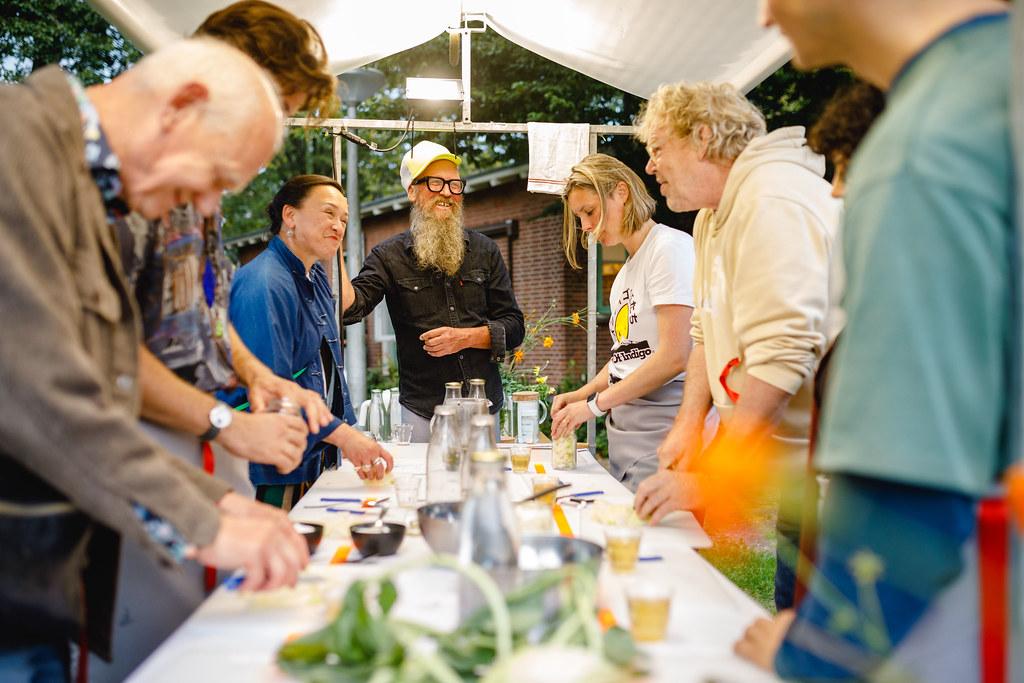In social energy initiatives, residents are joining hands to supply their neighbourhood with local, sustainable energy. Last year, Waag investigated how to strengthen the position of these initiatives in the energy transition. This research is now being followed up by Waag Futurelab and the Amsterdam Economic Board with a focus on the Amsterdam metropolitan region. How can we better support these initiatives in the Amsterdam metropolitan area, so that they can produce at least half of the energy for the regions built environment and private transport by 2050?
The research 'Social initiative in Amsterdam's energy transition' builds on Waag Futurelab and the Nationaal Klimaat Platform (National Climate Platform) their report on the positioning of social initiative in the national energy transition.
Civil society initiatives are pioneering without being facilitated
Community initiatives can make a major contribution to the Netherlands' climate goals. Energy cooperatives are already active in 86% of municipalities, totalling some 700 energy communities. However, only 1% of households are still members of these energy communities and the growth in the number of energy cooperatives is declining. Therefore, Waag Futurelab and Nationaal Klimaat Platform investigated how to strengthen the position of community initiatives in the national energy transition. In December, they published the results in the report Strengthening Social Initiative in the Energy Transition.
That report shows that social energy initiatives are currently pioneers without being facilitated in this. Existing structures, such as financing models, tenders or subsidy schemes, are aimed at private parties and do not work well for social initiatives. The report describes what support initiatives need in terms of governance, social structures, legal frameworks, financial resources and technology to develop further.
Much is possible at a regional level
In addition, the report Strengthening Social Initiative in the Energy Transition shows that much support can be provided locally and regionally. The power of social initiatives lies in the locality. The neighbourhood itself generates the energy it uses, creating decentralised energy systems. As a result, support is often not about scaling up, but about dissemination: designing and sharing methods, protocols, models and solutions that different social initiatives can apply.
Like supporting the set up of neighbourhood funds. Thanks to social energy initiatives, residents get access to their own cheap, local and sustainable energy. The resulting income can be invested by residents in community projects through a neighbourhood fund. For example, to make homes more sustainable or prevent energy poverty.
The follow-up study applies the lessons from the report Strengthening Social Initiative in the Energy Transition to the Amsterdam Metropolitan Area. What opportunities can be realised on a local and regional scale? And what role can the Amsterdam Economic Board play in this?
Looking differently, doing differently
The Amsterdam Economic Board (AMEC) is a network of companies, knowledge institutions, governments and civil society organisations working together on the Metropolis of Tomorrow. The research that Waag is conducting with AMEC is part of the programme Anders Kijken, Anders Doen (Looking Differently, Doing Differently): a call to offer perspective on the complex social issues we face and to work together on solutions.
In this track, Waag, together with social initiatives, civil servants and partners, explores new ways of working on the energy transition in Amsterdam. Ways of working in which public values and the quality of life have central place, both now and in the future.
The results of the study will be presented during AMEC's State of the Region networking event. The aim is for the current exploration to continue among stakeholders and contribute to strengthening the position of social initiative in energy transition within the Amsterdam metropolitan region.
Grip on the living environment
Through social initiatives, residents can relate to major issues and exert a grip on the living environment. However, cooperation between governments and social initiatives is often still difficult. The dominant frames and instruments within governments are focused on the market, but do not work for civil parties. Waag's Smart Citizens Lab works on strengthening public-civil collaboration.
Are you interested in collaborating with the Smart Citizens Lab? Then contact Judith Veenkamp via judith [at] waag [dot] org.
Curious about what can strengthen the position of civil society initiatives in the national energy transition? Read the report Strengthening Social Initiative in the Energy Transition.


